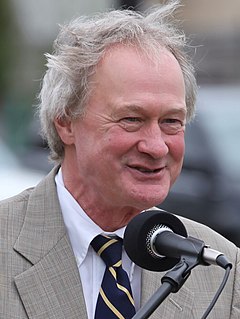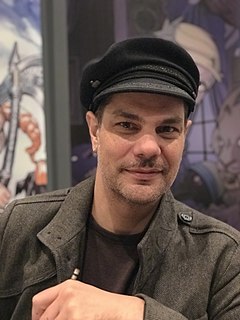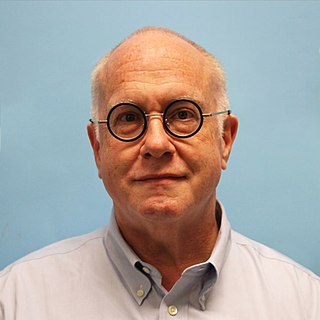A Quote by Lincoln Chafee
I worry about 10, 15, 20, 25 years down the road. Where are we going to be in this age of nuclear weapons, where there is no margin for error?
Related Quotes
What is the only provocation that could bring about the use of nuclear weapons? Nuclear weapons. What is the priority target for nuclear weapons? Nuclear weapons. What is the only established defense against nuclear weapons? Nuclear weapons. How do we prevent the use of nuclear weapons? By threatening to use nuclear weapons. And we can't get rid of nuclear weapons, because of nuclear weapons. The intransigence, it seems, is a function of the weapons themselves.
The economy in the next 20 to 25 years is going to change more than they did in the last 20, 25 years. And that's because exponential trends are affecting a bigger and bigger share of the economy. So we have some huge disruptions in store, and I can't predict exactly what the innovations are going to be. If I did, I would have already invented them. But I think they'll be comparable to the innovations we saw in the past 20, 25 years if not greater.
With all of the history of war, and the human race's history unfortunately has been a good deal more war than peace, with nuclear weapons distributed all through the world, and available, and the strong reluctance of any people to accept defeat, I see the possibility in the 1970's of the President of the United States having to face a world in which 15 or 20 or 25 nations may have these weapons.
The cavalier casual way that Donald Trump talks about nuclear weapons is not only frightening but it goes counter to more than 70 years of bipartisan, presidential leadership of Republicans and Democrats who believed that we have to prevent other countries from getting nuclear weapons and we have to do what we can to decrease the number of nuclear weapons in the world.
I think about 'The Simpsons,' which has been going on for 25 years. Homer is still in his late 30's. Lisa is 8, Bart is 10. Their stories are told. Yet the series keeps going on and on like a zombie that won't lie down and die. That feels forced and unnatural. The characters never change, grow, age.
The bottom line on nuclear weapons is that when the president gives the order, it must be followed. There's about four minutes between the order being given and the people responsible for launching nuclear weapons to do so. And that's why 10 people who have had that awesome responsibility have come out and, in an unprecedented way, said they would not trust Donald Trump with the nuclear codes or to have his finger on the nuclear button.
I don't want to use the term "nuclear weapons" because those people in Iran who have authority say they are not building nuclear weapons. I make an appeal to the countries who do have nuclear weapons. They don't consider them a nuclear threat. But let's say a country that doesn't have nuclear weapons gets involved in building them, then they are told by those that already have nuclear weapons that they oppose [such a development]. Where is the justice in that?
I come to this debate, Mr. Speaker, as one at the end of 10 years in office on the Permanent Select Committee on Intelligence, where stopping the proliferation of weapons of mass destruction was one of my top priorities. I applaud the President on focusing on this issue and on taking the lead to disarm Saddam Hussein... Others have talked about this threat that is posed by Saddam Hussein. Yes, he has chemical weapons, he has biological weapons, he is trying to get nuclear weapons.
Yes, I think lots of people are eager to obtain weapons of mass destruction. But there's no evidence that he has weapons of mass destruction. There's been no evidence of him testing nuclear weapons.
We have people that are in our face with nuclear weapons. We've got Iran and North Korea. We've got a problem with Pakistan. You know, I don't know what to say about that.
There's a whole lot of people that are going nuclear. And I think that Saddam Hussein is actually, with the evidence, the least able to use nuclear weapons and the least obvious offender in that area at this moment.
































